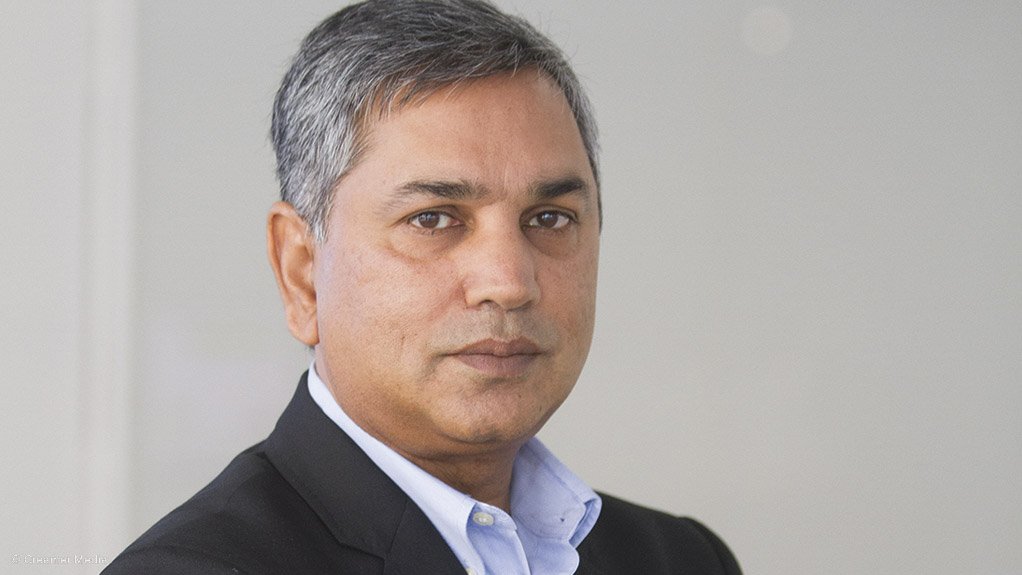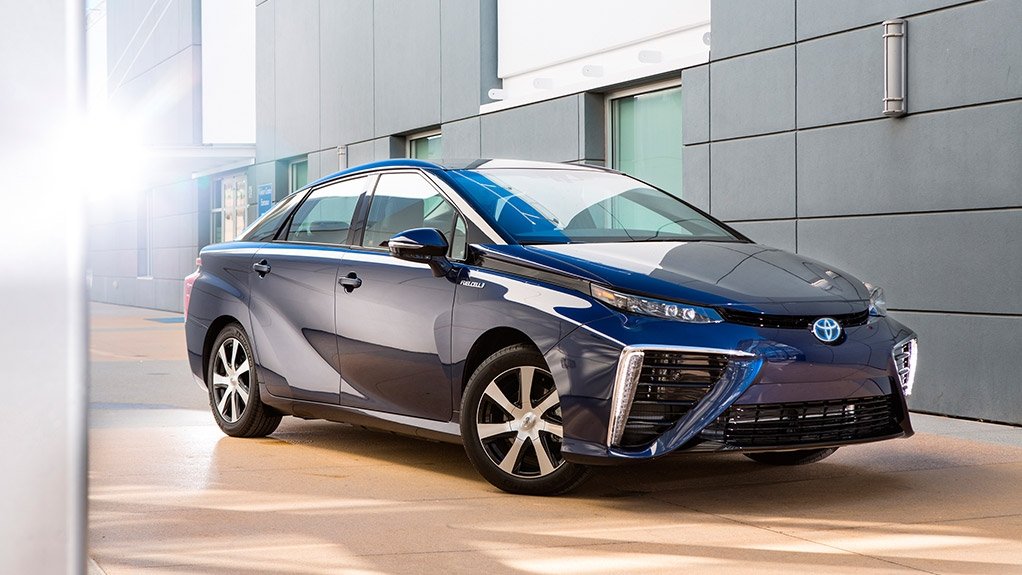South Africa needs to become a manufacturer of fuel cell components and associated technologies using platinum-group metals (PGMs). This will create additional revenue streams, as well as skilled and semi-skilled employment in the alternative-energy developing sector, for the country to participate in the growth of the global fuel cell industry, Isondo Precious Metals (IPM) CEO Vinay Somera tells Mining Weekly.
Modern fuel cells have been developed and deployed in a number of applications for the past 50 years, ranging from spacecraft to automotive and stationary applications.
Somera says the fuel cell industry is poised for growth, but that uptake remains “bedevilled” by high capital costs of products and a lack of refuelling infrastructure.
While there are many factors that contribute to the high capital costs, platinum represents one of the major cost drivers within the control of the South African industry and government.
“The fuel cell sector, therefore, represents a key metal beneficiation strategy for South Africa and we all have a strong vested interest in the rapid development of a global market for fuel cells,” Somera adds.
Government is devoting resources to promote local beneficiation through the creation of a legislative and financial platform that will enable precious metals and technology companies to successfully develop new metals technology and value-added processing industries in the country.
“By accelerating the establishment of special economic zones (SEZs), government is manifesting its intent in support of such initiatives,” Somera says, noting, however, that the opportunity is under significant threat.
The quest for cost reduction in fuel cell technology has been centred on the reduction of platinum loadings in fuel cell catalysts and the replacement of platinum with other catalyst types.
The market is dominated by polymer electrolyte membrane (PEM) fuel cells at 84.38% of the market, while direct methanol (DM) and solid oxide (SO) fuel cells make up 4.48% and 9.82% of the current market respectively. PEM and DM fuel cells contain platinum in their electrodes, while SO fuel cell technology, which is being explored by IPM, uses rhodium in the pre- reforming step.
PEM fuel cells are suited to automotive and smaller-scale stationary applications, while DM fuel cells are used for smaller-scale stationary applications and some portable ones.
The market for phosphoric acid (PA) fuel cells, at 0.28%, is limited, since SO fuel cells are the preferred technology for the deployment of large-scale stationary applications, owing to the high operating temperature of SO fuel cells and the associated better efficiencies, according to Somera.
IPM’s focus is on PEM fuel cells, owing to their dominant market applicability and prospects for growth, particularly in the automotive segment. Market development and technology deployment go hand in hand with low-cost manufacturing initiatives to create win-win scenarios for South Africa.
The company has been working on creating fuel cell deployment strategies in the transport and telecommunications sectors – underpinned by localised fuel cell component manufacturing strategies – to help South Africa leapfrog competitor countries and international companies in establishing a local fuel cell manufacturing industry.
Part of the strategy is to harness South Africa’s inherent advantages, whether comparative or competitive – including its metals endowment, available incentives and lower cost of technology skill sets, compared with those of international competitors, as well as access to funding – to develop and realise a lower-cost manufacturing strategy that can provide fuel cell components at a lower cost than those of any international competitor.
“The rationale for this strategy is not to merely create demand in South Africa to justify local manufacturing facilities but also to set up a manufacturing hub to supply the burgeoning international market demand,” Somera explains.
He says IPM’s fuel cell deployment strategy will be useful in revitalising the public transport infrastructure network in South Africa’s cities, with new models underpinned by national policy documents such as Moving South Africa and the National Public Transport Strategy.
According to Somera, these policies present a unique opportunity to integrate zero-emission fuel cell options and the requisite infrastructure into South Africa’s development plan from the outset, beginning with a fuel-cell-driven bus and taxi as proof of concept.
Incorporating fuel cells into the new transport plans serves multiple goals, he notes. “It is a fantastic marketing opportunity for the technology, creates awareness in the public mindset, helps reduce carbon emissions, could be a lower operating-cost model and provides a platform to localise fuel cell bus original-equipment manufacturers. It also creates markets for South Africa-based fuel cell components manufacturing and ensures the addition of new jobs.”
Additionally, this project will require the creation of hydrogen refuelling infrastructure, which is used in fuel cells to support the potential deployment of fuel cell vehicles in the transport sector.
“Fuel production processes and refuelling infrastructure represent an early market development opportunity for the country and could also become an export industry,” Somera enthuses.
The big demand driver for fuel cells worldwide is the automotive market, which is currently in its infancy.
Projections based on current platinum loadings show that, if 1% of the world’s automotive fleet runs on fuel cells, this could consume more than 846 000 troy ounces of platinum.
“Moreover, if the international community is to reach its carbon dioxide emissions reduction targets by 2050, as embodied in the December 2015 [Paris Climate Conference] agreement, most vehicles on the roads will need to generate zero emissions. This can be achieved only by purely battery-driven electric vehicles or electric fuel cell vehicles,” Somera concludes.
Edited by: Tracy Hancock
Creamer Media Contributing Editor
EMAIL THIS ARTICLE SAVE THIS ARTICLE
To subscribe email subscriptions@creamermedia.co.za or click here
To advertise email advertising@creamermedia.co.za or click here















